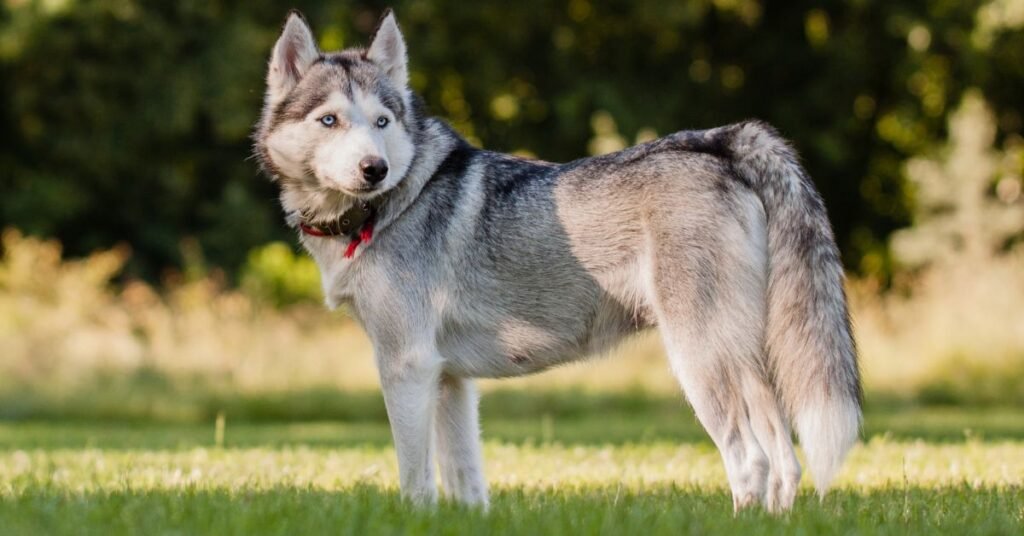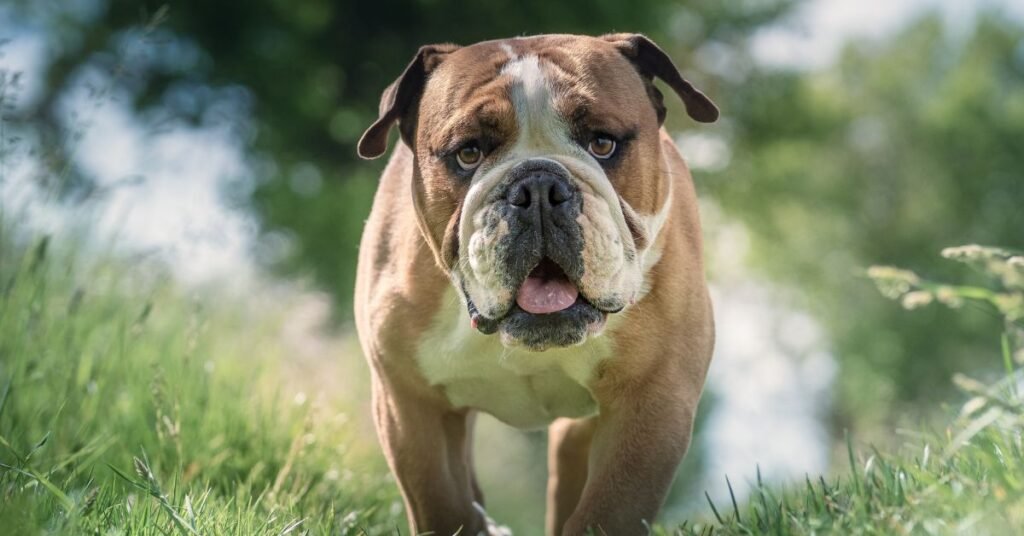Siberian Husky Vs Bulldog
Siberian Husky Vs Bulldog: History and Origins
Siberian Husky The Siberian Husky’s history traces back to the harsh landscapes of Siberia, where the indigenous Chukchi people bred them over thousands of years. These dogs were essential for survival, serving as sled dogs in the Arctic regions.
Their endurance and ability to thrive in frigid conditions were highly valued. In the early 20th century, Siberian Huskies were introduced to North America during the Nome Gold Rush, gaining recognition for their incredible stamina and work ethic.
Bulldog: The Bulldog, in stark contrast, has English roots and a history steeped in bull-baiting. Originally bred for this brutal sport, Bulldogs were muscular and aggressive, holding down bulls by the nose.
The 19th century saw a significant shift in their breeding towards a more gentle and docile temperament. Today’s Bulldog is a far cry from its aggressive ancestors and is renowned for its loyalty and affection towards its human companions.
Siberian Husky Vs Bulldog: Appearance and Characteristics
Siberian Husky Siberian Huskies are medium-sized dogs with a striking appearance. They have a thick double coat that helps them endure cold climates, and their almond-shaped eyes come in various captivating colors.
This breed is known for its wolf-like appearance, erect triangular ears, and distinctive facial markings. Huskies are agile and athletic, showcasing their impressive sled-pulling heritage.
Bulldog Bulldogs are instantly recognizable due to their unique appearance. They are stocky, muscular dogs with loose, wrinkled skin and a distinctive pushed-in nose. Their loose, jowly mouths give them a somewhat comical expression.
Bulldogs have a short, smooth coat that comes in various colors. Despite their imposing appearance, they have a friendly and affectionate demeanor.

Siberian Husky Vs Bulldog: Temperament
Siberian Husky Siberian Huskies are known for their adventurous spirit and independent nature. They are friendly and social dogs but can be a bit aloof with strangers. Huskies are intelligent but can also be quite stubborn, requiring consistent training. They have a strong prey drive and may not be the best choice for households with small pets. Huskies are active and need regular exercise to stay happy and healthy.
Bulldogs Bulldogs have a calm and gentle temperament, making them excellent family pets. They are affectionate and loyal to their owners and tend to get along well with children and other pets. Bulldogs are not very active and are content with moderate exercise, making them suitable for apartment living. They are known for their friendly and easygoing nature.

Siberian Husky Vs Bulldog: Health
Siberian Husky
Siberian Huskies are generally healthy dogs but are prone to certain health issues. They can develop hip dysplasia, eye problems like cataracts, and autoimmune disorders. It’s essential to provide them with proper nutrition and regular veterinary care to maintain their health. Cold weather can exacerbate joint issues, so owners in colder climates should take precautions.
Bulldog
Bulldogs have a unique set of health concerns due to their brachycephalic (flat-faced) nature. They can suffer from respiratory problems, overheating in hot weather, and skin issues in their wrinkled folds. Bulldogs are also prone to hip dysplasia and certain cardiac conditions. Responsible breeding practices are crucial to minimize these health risks in Bulldogs.
Siberian Husky Vs Bulldog: Trainability
Siberian Husky
Siberian Huskies are intelligent dogs, but they can also be quite independent and stubborn. This can make training a challenge, especially for novice dog owners. Consistency and positive reinforcement methods work best with Huskies. Early socialization and obedience training are crucial to ensure they grow into well-behaved adults. However, their strong-willed nature means that training may require patience and persistence.
Bulldog
Bulldogs are generally easier to train compared to Huskies. They are eager to please and respond well to positive reinforcement techniques. Early socialization and consistent, gentle training methods are essential for Bulldogs. They enjoy the attention and interaction that training provides, making it a rewarding experience for both the dog and owner.
Siberian Husky Vs Bulldog: Bark
Siberian Husky
Siberian Huskies are not known for excessive barking. They are a relatively quiet breed and tend to vocalize with howling or “talking” rather than incessant barking. They may howl when they are excited or when they want attention. However, they are generally not considered to be noisy dogs compared to some other breeds.
Bulldog
Bulldogs are not excessive barkers either. They are typically quiet dogs and are more likely to bark when they sense something unusual or want to alert their owners. They are not known for nuisance barking, which makes them a good choice for living in close quarters or quiet neighborhoods.
Siberian Husky Vs Bulldog: Adaptability
Siberian Husky
Siberian Huskies are well-adapted to cold climates, thanks to their thick double coat. They thrive in colder weather but can struggle in hot and humid conditions. They may be prone to overheating in such environments. Additionally, their high energy levels mean they require ample exercise and mental stimulation, which should be considered when adapting them to different living situations.
Bulldog
Bulldogs are adaptable to various living situations, including apartments and houses. They are not particularly sensitive to temperature extremes but should be protected from extreme heat due to their brachycephalic nature. Bulldogs do well in urban settings and can adapt to a more laid-back lifestyle, making them suitable for both active and less active households.
Siberian Husky Vs Bulldog: Nutrition
Siberian Husky
Siberian Huskies have a high metabolism and may require more calories than some other breeds of similar size. Their diet should be balanced and tailored to their activity level and age. High-quality dog food with protein sources, vitamins, and minerals is essential for their health and energy. Always consult with a veterinarian to determine the best diet plan for your Husky.
Bulldog
Bulldogs tend to be less active than Huskies, which means they have lower caloric needs. Obesity can be a concern with Bulldogs, so it’s essential to monitor their food intake and choose a balanced, high-quality dog food appropriate for their age and size. Care should be taken not to overfeed Bulldogs to maintain their ideal weight and overall health.
Frequently Asked Questions
Are Siberian Huskies good with children?
Siberian Huskies can be good with children when properly socialized and trained. They generally have a friendly and gentle nature, but their high energy levels and playful nature should be supervised around young children to prevent accidental knocking or injury.
Do Bulldogs get along well with other pets?
Bulldogs can get along well with other pets, including cats and other dogs, especially if they are properly socialized from a young age. However, individual personalities and temperaments can vary, so it’s important to introduce them to other animals gradually and monitor their interactions.
How much exercise do Siberian Huskies need?
Siberian Huskies are an energetic breed that requires a significant amount of exercise. They should have at least 1-2 hours of physical activity daily, including long walks, jogging, or engaging in activities like agility or sledding. Mental stimulation is also important to prevent boredom.
Are Bulldogs suitable for apartment living?
Bulldogs can adapt well to apartment living, as they are generally less active and require less exercise compared to some other breeds. However, it’s important to ensure they have proper ventilation and a comfortable living environment, as they can be sensitive to heat and humidity. Regular short walks and mental stimulation are still important to keep them healthy and mentally stimulated.
Do Siberian Huskies shed a lot?
Yes, Siberian Huskies are known to shed profusely, particularly during shedding seasons. They have a thick double coat that helps protect them in cold climates but requires regular brushing to manage shedding. During shedding seasons, daily brushing is recommended to minimize loose hair around the home.
Which breed is easier to train, Siberian Huskies or Bulldogs?
Bulldogs are generally considered easier to train compared to Siberian Huskies. Bulldogs have a cooperative nature and a desire to please their owners, making them more receptive to training. Siberian Huskies, on the other hand, can be independent and strong-willed, requiring consistent training methods and positive reinforcement techniques.

